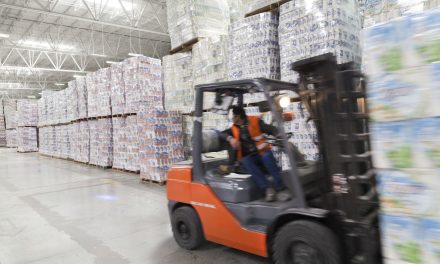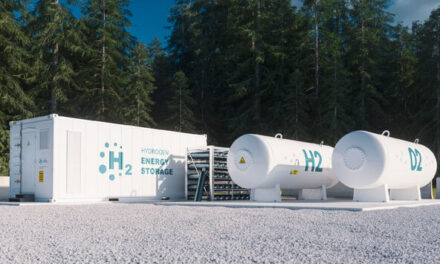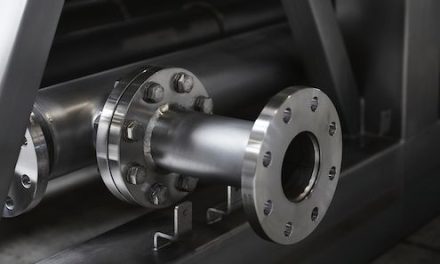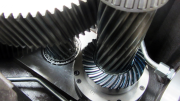 For the steel industry it is more important than ever that proper maintenance and repair work be carried out on its plant and equipment to prevent costly and potentially catastrophic failures. Here Andrew Baggaley and Tony Botfield of Brevini UK explain how techniques they have pioneered across several steelworks in the North of England are paying dividends.
For the steel industry it is more important than ever that proper maintenance and repair work be carried out on its plant and equipment to prevent costly and potentially catastrophic failures. Here Andrew Baggaley and Tony Botfield of Brevini UK explain how techniques they have pioneered across several steelworks in the North of England are paying dividends.
Steel making creates some of the harshest working conditions a gearbox may be expected to tolerate. In continuous casting for example, temperatures are extreme with the steel product still red hot and semi-molten when it hits the roll out drives. Add to that a dirty environment, shock-loading and the runtime demands of continuous production, and even purpose-designed gearboxes will require frequent rebuilds.
It’s no secret that resources and overheads have been squeezed within the UK steel industry as it strives to remain profitable in the global market. While UK competitiveness stems from a reputation for some of the highest quality product produced anywhere, it is also essential that refurbishment of plant is well managed in order to minimise cost and extend service life.
Brevini UK is part of a global group that specialises in power transmission engineering. It manufactures planetary, helical, bevel/helical and hybrid combination gearboxes, winches and hydraulic products, working with clients to design, install, commission and maintain critical equipment.
As a manufacturer of gearboxes for almost every industrial application, Brevini has a long association with heavy industries and the demanding working environments that often define them. It has worked in the steel industry in many different countries, including Italy, China, America and the UK.
The UK engineering team maintains a high level of technical expertise and offers a customer-focused approach to service, including working with gearboxes made by third parties. For many projects this includes developing bespoke packages, although standard products are also used when appropriate.
“In one case, where we were asked to supply ‘rolling refurbishment programme’ work on the continuous casting facilities, under fixed term contract, the mean time between failures [MTBF] of the roll out gearboxes had degraded to less than six months before we came on board” recalls Tony.
“The units in question were not our own Brevini products, but as a gearbox specialist we were happy to offer refurbishment and technical support.”
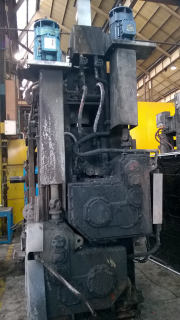 The cost of any unplanned stoppages to the continuous casting process is unbelievably high. Yet, when Brevini conducted its initial evaluation it found that, historically, attention to detail on the spare parts being used had been very poor. As an initial course of action Brevini set about sourcing parts to precise tolerances and rebuilding the units to high standards. The approach didn’t add any expense to the maintenance process and allowed Brevini to ensure that any future repairs would be made with components most suited to the task in hand.
The cost of any unplanned stoppages to the continuous casting process is unbelievably high. Yet, when Brevini conducted its initial evaluation it found that, historically, attention to detail on the spare parts being used had been very poor. As an initial course of action Brevini set about sourcing parts to precise tolerances and rebuilding the units to high standards. The approach didn’t add any expense to the maintenance process and allowed Brevini to ensure that any future repairs would be made with components most suited to the task in hand.
Andrew explains, “Because we have developed a close working relationship with the mill engineers, we have learnt what is critical and continued to identify areas where we can make small improvements. We operate an extremely transparent reporting system, which lets the customer see the scope of work carried out on each unit and allows us to open up discussions for future learning.
“The improvements that this process has allowed us to make ranges from tolerances employed to heat reflective paint, to changes to allow the clearance of water cooling pathways. In conjunction with the Central Engineering Team, we have developed specific work procedures for the gearboxes in question.
“Our experience as a manufacture pays direct dividends to our aftermarket customers. In this case the mill is able to minimise its stockholding without getting caught out and losing production capacity. Of course we had to build trust with the various mill stakeholders, including Procurement, Maintenance and Engineering, but they soon saw the value in what we provided”.
By repeatedly delivering high integrity refurbishment on extremely tight lead times, Brevini has enabled the client to break out of what had become a vicious circle where maintenance was carried out poorly as a hurried reaction to failures. By making the units last longer, Brevini has made more of the budget available for preventative maintenance, further improving the reliability of the continuous casting process.
As a result of the Brevini service contract the average life in service was extended to over 18 months, which is an improvement of more than 300%. In fact, in this particular application, the units Brevini services are now routinely returned for rebuild before critical failure occurs due to the Rollout Stand being overhauled for other reasons and the maintenance opportunity arising.
Over the course of three years this working arrangement has been extended to several more ‘rolling refurbishment’ programmes across the mill with similar success.
